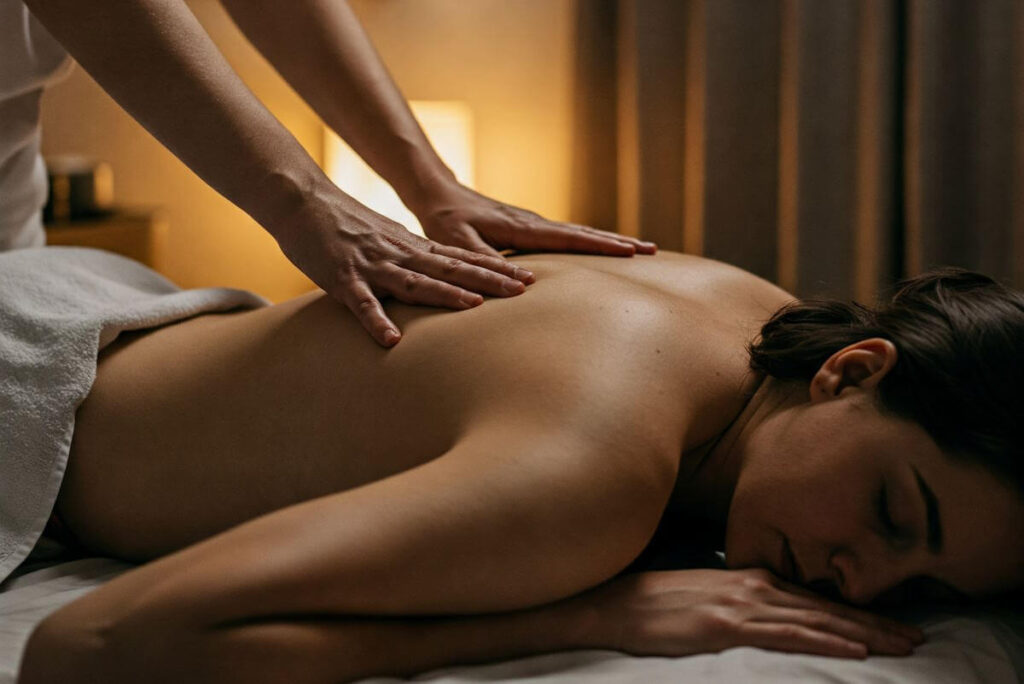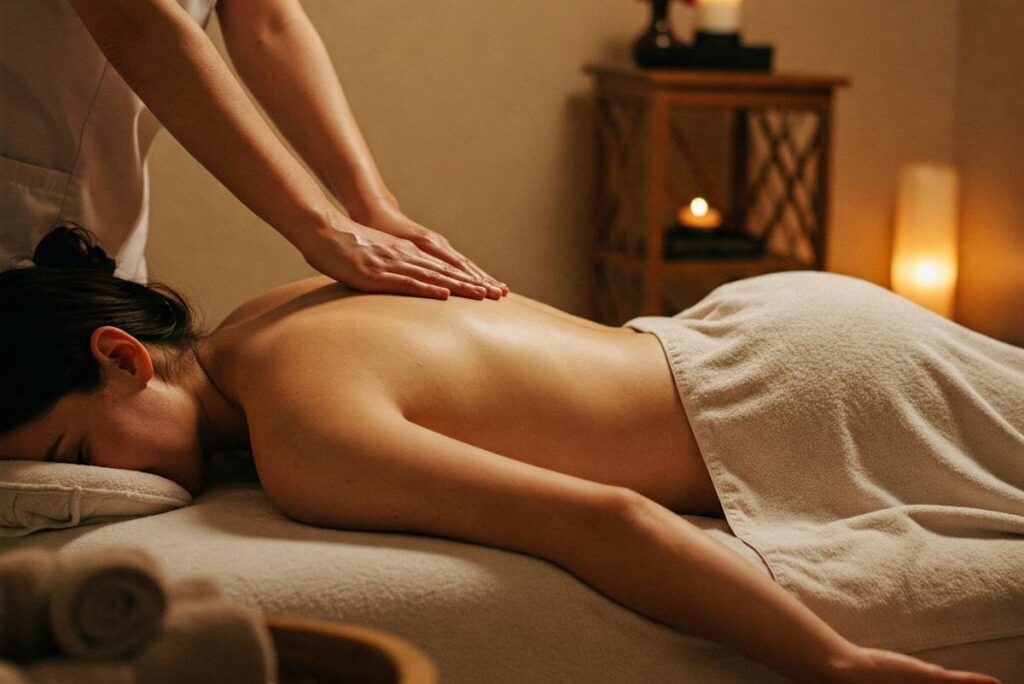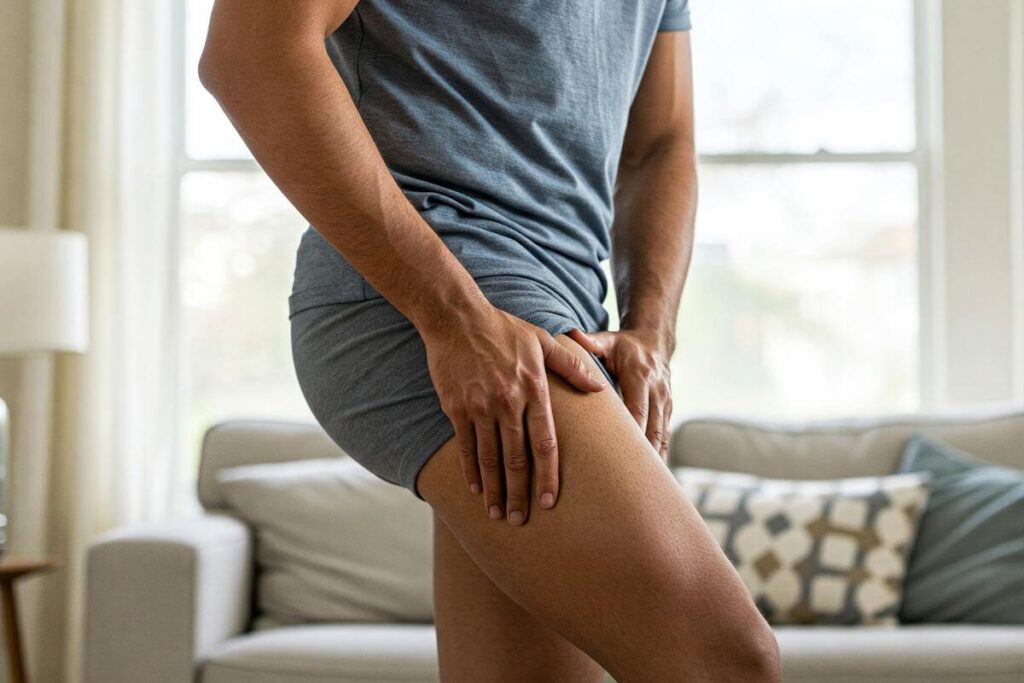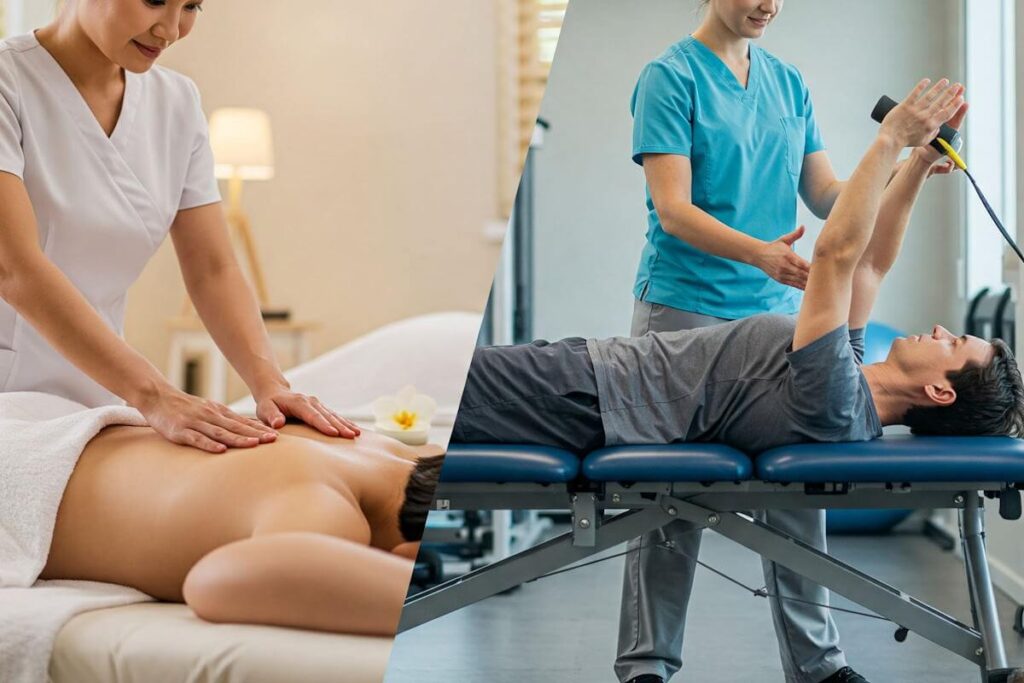Understanding Sleep: The Importance of a Good Night’s Rest
Sleep is a vital component of human health and well-being, serving several key functions that are essential for physical, mental, and emotional health. Good sleep is not merely a luxury but a necessity, as it contributes significantly to the restoration and rejuvenation of the body and mind. During sleep, the body undergoes various physiological processes that are critical for maintaining overall health, including cellular repair, muscle growth, and immune function enhancement. There are several stages of sleep, primarily categorized into rapid eye movement (REM) and non-REM (NREM) sleep, each playing a significant role in different aspects of health.
NREM sleep is further divided into three stages: light sleep, moderate sleep, and deep sleep. Light sleep facilitates muscle relaxation and gradual heart rate reduction, while moderate sleep contributes to physical restoration and growth. The deep sleep stage is particularly crucial as it is during this time that the body conducts vital repair work, including memory consolidation and hormone regulation. Conversely, REM sleep is essential for emotional regulation, creativity, and cognitive functions. Disruptions or deficits in these stages can lead to sleep deprivation, which has been associated with cognitive decline, mood disorders, and increased susceptibility to chronic diseases.
Sleep deprivation can affect psychological well-being, leading to heightened stress levels, anxiety, and irritability. Additionally, chronic sleep issues can be linked to a range of health problems, including obesity, diabetes, cardiovascular diseases, and impaired immune responses. Thus, understanding and prioritizing the importance of sleep is essential for everyone. It is critical to recognize that quality sleep should be a priority, given its foundational role in promoting physical health, enhancing cognitive functions, and supporting emotional stability.
How Massage Therapy Works: The Science Behind It
Massage therapy is a holistic method that employs a variety of techniques aimed at manipulating the soft tissues of the body, which include muscles, tendons, and ligaments. This practice has garnered significant attention for its potential to improve overall well-being, particularly in the context of sleep enhancement. The science behind massage therapy highlights its ability to induce relaxation, alleviate muscle tension, and foster improved blood circulation.
At a physical level, massage therapy primarily works through the application of pressure and movement. Various techniques such as Swedish massage, deep tissue massage, and myofascial release focus on soothing tense muscles and increasing flexibility. Research has shown that these techniques can lead to the release of endorphins, which are natural pain-relieving hormones that promote a sense of well-being. Furthermore, massage therapy can lower levels of cortisol, the stress hormone, thus reducing anxiety and promoting a relaxed state conducive to better sleep.
Biochemically, massage stimulates blood flow, which enhances oxygenation of tissues and promotes the removal of metabolic waste. This improved circulation can alleviate discomfort that may disrupt sleep, while also nourishing the muscles and promoting healing. Studies published in reputable journals corroborate the efficacy of massage in evoking a relaxation response, with findings indicating that regular massage therapy sessions can lead to longer sleep durations, improved sleep quality, and a decrease in sleep disturbances.
In light of these observations, massage therapy emerges as a valuable tool for those seeking to enhance their sleep quality. Integrating massage into a regular wellness routine can provide not only physical relief but also emotional tranquility, which is essential for fostering a restful night’s sleep. The interplay between the physical techniques and biochemical reactions exemplifies the multifaceted benefits of massage therapy, emphasizing its role in creating the ideal conditions for deep, restorative sleep.
The Connection Between Massage and Sleep Quality
Sleep quality is a multifaceted aspect of health influenced by various factors, one of which is the practice of massage therapy. Research has shown that regular massage can significantly improve sleep by directly affecting the body’s hormonal balance and relaxation response. A primary way massage enhances sleep is by reducing cortisol levels, known as the stress hormone. When cortisol levels are diminished, individuals often experience a reduction in stress and anxiety, which are common barriers to achieving restful sleep.
Moreover, massage has been found to promote the release of serotonin and dopamine, neurotransmitters that contribute to feelings of well-being and relaxation. Serotonin is not only crucial for mood stabilization but also acts as a precursor to melatonin, the hormone responsible for regulating the sleep-wake cycle. By increasing serotonin levels, massage therapy indirectly supports the production of melatonin, making it easier for individuals to fall asleep and stay asleep through the night.
Case studies and testimonials from individuals who have engaged in regular massage highlight the positive impact on sleep quality. For example, a study involving participants who received weekly massages reported substantial improvements in their sleep patterns, with many noting a decrease in the time taken to fall asleep and an increase in sleep duration. Testimonials often reflect that individuals feel more rested and refreshed after nights that followed massage sessions. These findings reinforce the notion that incorporating massage therapy into one’s wellness routine can effectively enhance sleep quality.
In summary, the connection between massage and sleep quality is well-supported by both research and anecdotal evidence. By targeting the hormonal influences related to stress and mood, massage serves as a powerful tool for those seeking better sleep outcomes.
Types of Massage that Promote Better Sleep
Massage therapy encompasses a variety of techniques, each with unique benefits that can enhance sleep quality. Among the most popular forms of massage, Swedish massage is often recommended for its gentle, relaxing strokes. This massage technique utilizes long, sweeping movements, kneading, friction, and circular motions on superficial layers of muscle. By targeting tension and promoting relaxation, Swedish massage can effectively reduce stress levels, making it an ideal choice for individuals struggling with insomnia or anxiety-related sleep issues.
Another beneficial approach is deep tissue massage, which focuses on the deeper layers of muscle and connective tissue. This technique is particularly useful for those suffering from chronic pain or muscle tension, conditions that often interfere with sleep. By using slower strokes and deeper pressure, deep tissue massage helps to release muscle knots and alleviate discomfort, thereby promoting overall relaxation and paving the way for a restful night.
Aromatherapy massage combines the therapeutic benefits of massage with the calming effects of essential oils. Essential oils, such as lavender and chamomile, are known for their soothing properties. When integrated into a massage, these scents can enhance the experience and further encourage relaxation. Aromatherapy massage is particularly suitable for individuals who find their sleep disrupted by stress or racing thoughts, as it utilizes the dual action of touch and scent to foster an environment conducive to sleep.
For those dealing with sleep issues related to specific circumstances, such as postpartum recovery or injury rehabilitation, specialized massage techniques can also be beneficial. Prenatal massage is designed to address the unique needs of expectant mothers, helping to relieve physical discomfort and promote relaxation, while sports massage can assist those recovering from athletic injuries by reducing tension and enhancing recovery. Tailoring the type of massage to individual needs can significantly enhance its effectiveness in promoting better sleep.
Creating a Sleep-Inducing Massage Routine
To foster better sleep through massage, establishing a personalized routine is essential. This routine can encompass both self-massage techniques and considerations for seeking professional massage therapy. Begin by identifying specific areas of tension in your body, which often contribute to sleep disturbances. Common areas include the shoulders, neck, and lower back. Once you have pinpointed these zones, allocate around 15 to 30 minutes each evening for self-massage, ideally one to two hours before you plan to sleep.
For self-massage, utilize techniques such as kneading and gentle pressing. For the neck, use your fingertips to apply pressure in circular motions, gradually working along the length of the muscles. Employ a similar method on your shoulders and lower back, where you can apply more weight and pressure to release muscle tightness. Additionally, consider integrating calming essential oils, such as lavender or chamomile, into your routine to enhance relaxation and promote better sleep quality.
When deciding to seek professional massage therapy, look for therapists who specialize in techniques that promote relaxation, such as Swedish or aromatherapy massage. Each session should ideally last between 60 and 90 minutes, with a frequency of once a week or bi-weekly, depending on individual needs and preferences. Communicate your sleep concerns with the therapist to tailor the session towards alleviating stress and fostering a restful state. Furthermore, ensure the environment during these sessions is tranquil—preferably dimly lit and quiet, with a soothing ambiance to facilitate relaxation.
Incorporating these structured practices into your daily routine will help create a conducive atmosphere for sleep, ultimately enhancing your overall sleep experience.
Combining Massage with Other Sleep Hygiene Practices
Massage therapy is an effective tool for improving sleep quality, but its benefits can be significantly enhanced by integrating it with other sleep hygiene practices. A holistic approach is essential for achieving optimal rest. One key factor is creating a conducive sleep environment. This involves ensuring that your bedroom is dark, quiet, and at a comfortable temperature. Utilizing blackout curtains and white noise machines can create a serene space, allowing individuals to unwind and prepare for sleep. Additionally, decluttering the sleeping area can promote a sense of calm, further aiding relaxation.
Maintaining a regular sleep schedule is another crucial component of sleep hygiene. Going to bed and waking up at the same time each day helps regulate the body’s internal clock, making it easier to fall asleep and wake up refreshed. Incorporating massage into this routine can serve as a signal to the body that it is time to wind down. For instance, a gentle massage in the evening can help transition from daily activities into a relaxed state conducive to sleep.
Furthermore, engaging in other relaxation techniques can complement the benefits of massage therapy. Practices such as deep-breathing exercises, meditation, or gentle yoga can reduce stress and anxiety, further promoting restful sleep. These techniques can help shift the focus from daily worries to a more tranquil state of mind. By coupling these practices with regular massage sessions, individuals can cultivate a comprehensive strategy for improving sleep quality. The combined effect of these diverse methods can lead to a more profound and lasting improvement in overall well-being, ultimately fostering a healthier relationship with sleep.
When to Seek Professional Help: Understanding Sleep Disorders
While self-massage and relaxation techniques can significantly enhance sleep quality for many individuals, there are instances when these approaches may prove insufficient. Understanding sleep disorders is crucial in determining when to seek professional assistance. Common sleep disorders such as insomnia and sleep apnea are significant barriers to restful nights, and recognizing their signs is vital for timely intervention.
Insomnia, characterized by difficulty falling asleep, staying asleep, or waking up too early, affects a substantial portion of the population. Symptoms often include persistent fatigue, mood swings, and difficulty concentrating. If self-care measures such as massage or meditation do not yield improved sleep after several weeks, it may be time to consult a sleep specialist. Insomnia can stem from various factors, including stress, anxiety, or underlying medical conditions, necessitating a thorough evaluation.
Sleep apnea, on the other hand, is a condition marked by interrupted breathing during sleep. This disorder can lead to fragmented sleep and daytime drowsiness, often exacerbated by snoring and choking sensations. Recognizing symptoms such as excessive daytime sleepiness, loud snoring, or episodes of breathing cessation is crucial. Individuals experiencing these signs should not hesitate to seek professional help, as untreated sleep apnea can result in serious health complications, including cardiovascular diseases.
If you suspect that you or a loved one may have a sleep disorder, it is essential to consult a healthcare provider or a sleep specialist. These professionals can conduct necessary assessments, recommend appropriate treatment options, and guide you toward methods that could considerably enhance your sleep quality. Resources such as sleep clinics and organizations dedicated to sleep health can also provide valuable support and information.
Potential Risks and Considerations of Massage for Sleep
While massage therapy can be an effective method for improving sleep quality, there are several potential risks and considerations that individuals should be aware of before initiating a new massage routine. One significant factor is the existence of certain medical conditions that may contraindicate the use of massage therapy. Individuals with conditions such as severe osteoporosis, deep vein thrombosis, specific skin infections, or recent surgeries should exercise caution. These conditions can exacerbate health issues rather than alleviate them through massage.
Furthermore, it is imperative to consult a healthcare professional prior to starting any new massage therapy program, especially if there are pre-existing medical issues. A qualified healthcare provider can assess personal health histories and advise on the suitability of massage therapy as an option for enhancing sleep. Such consultations ensure that individuals make informed decisions based on their unique medical circumstances.
Moreover, selecting the right massage therapist is equally important. It is advisable to seek therapists who specialize in sleep enhancement, as they possess the requisite knowledge about specific techniques that may promote relaxation and improve sleep quality. When searching for a qualified professional, individuals should look for licensed therapists who have undergone accredited training and possess adequate experience in applying techniques aimed at enhancing sleep. Read reviews, ask for recommendations, and inquire about their approach to ensure that the therapist aligns with one’s personal comfort and requirements. By taking these precautions, individuals can minimize risks while maximizing the potential benefits of massage therapy for better sleep.
Final Thoughts: Embracing Massage as a Tool for Better Sleep
As we have explored, massage therapy offers a multitude of benefits that can significantly enhance sleep quality. The relaxation induced by massage not only eases physical tension but also promotes mental tranquility, paving the way for a deeper, more restorative sleep. Techniques such as Swedish massage, deep tissue massage, and aromatherapy massage can address various sleep disturbances, from stress-related insomnia to muscular discomfort. By facilitating the release of endorphins and reducing cortisol levels, massage serves as a natural method to transition the body into a restful state.
Incorporating massage into your weekly routine can provide cumulative effects, gradually improving your overall sleep hygiene. Whether you opt for professional sessions or practice self-massage techniques, the aim should be to create a consistent habit that fosters relaxation. Consider integrating massage practices with other components of a healthy lifestyle, such as maintaining a balanced diet, engaging in regular physical activity, and establishing a calming bedtime ritual. Together, these elements create a synergistic effect that can lead to improved relaxation and sleep quality.
As you contemplate embracing massage as a tool for better sleep, it is essential to be mindful of your individual needs and preferences. Experimenting with different massage modalities and finding what resonates with you can enhance your overall experience. Whether you seek a gentle touch or a more intense therapy, the goal is to nurture your body and mind. This intentional focus on self-care promotes not only better sleep but also a greater sense of well-being.
In conclusion, the journey to restorative sleep is a personal and evolving process. By embracing massage as a valuable ally in achieving better sleep, you are taking a proactive step toward enhancing your overall mental and physical health. Prioritize your rest, and allow the soothing benefits of massage to guide you toward a life marked by increased energy and vitality.




